Your Ultimate Book Guide to the Nature vs. Nurture Debate
Genetics, parenting, and the origins of who we are.
What determines who we are? Is it our genetics or how we were raised? The “nature vs. nurture” debate has been foundational in psychology for the last century. But advancements in our understanding of genetics and heritability, especially in the last decade has radically transformed what we know about how both nature and nurture contribute to who we become across development.
Over time, we’ve gone from a crude understanding of heritability in the early 20th century to the discovery of the structure of DNA by mid-century. Twin research took off in the 1970s to score points for the “nature” side of the debate. But in the last 15 years or so, genome-wide association studies have provided a heavy dose of nuance and new insights to both the “nurture” and “nature” sides.
This month’s book guide takes you on a tour of the dynamic history of the nature vs. nurture debate across the last century. Happy reading!
She Has Her Mother's Laugh: The Powers, Perversions, and Potential of Heredity
By Carl Zimmer | Published 2018 (Dutton)
The excellent science writer Carl Zimmer presents a sweeping history of heredity in She Has Her Mother’s Laugh by weaving together research, sociology, and policy. This is an excellent and engaging book to get a comprehensive view of how people have thought about genetic inheritance – and the social and policy decisions that followed from such knowledge. This is a perfect book if you’re new to understanding heredity or if you’ve read a lot about behavior genetics yet have limited knowledge of the complex history surrounding genetics over the past century.
The Blank Slate: The Modern Denial of Human Nature
By Steven Pinker | Published 2002 (Viking)
This is a psychology classic. Harvard psychologist Steven Pinker refutes a common assumption that has been made in psychology for too long – that there is no innate human nature. This assumption, sometimes referred to as the ‘nurture assumption’ (coined by Judith Rich Harris – see the next book) posits that human minds are relatively blank at birth, metaphorically speaking, and nearly everything we are is learned over development. Pinker demonstrates that our brain is the most powerful learning machine in the known universe and our minds are a product of millions of years of evolution, which has left ‘innate’ marks on our brain and behavior.
No Two Alike: Human Nature and Human Individuality
By Judith Rich Harris | Published 2006 (W. W. Norton)
Judith Rich Harris scandalized the world of developmental psychology in the early 1995 with the publication of a paper in Psychological Review in which see advanced a peer socialization theory of development. Developmental psychology largely operated on the ‘nurture assumption’ that nongenetic influences on behavior were a product of parental socialization during development Harris, however, argued that was wrong and that rather children’s peers hold greater power. Her theory is meant to explain the ‘non-shared environmental’ variance that is found in behavior genetic twin studies. Although she, in my expert opinion, overexaggerated the lack of impact that parents have on development, her book is a classic and is a great reference for a widely held, heterodox view in developmental psychology.
Blueprint: How DNA Makes Us Who We Are
By Robert Plomin | Published 2018 (MIT Press)
Twin research, which really kicked off in the 1970s, began a new era of research for psychologists and social scientists – and Robert Plomin is a main character of the time. His pioneering work has resulted in profound insights about the role of genetics in who we become across development (and literally wrote the book on the topic!). Blueprint is a fantastic overview of the core behavior genetic methods and insights from the program of research over several decades, and is a great entry point into the topic. I personally think he oversells the future implications section at the end, but overall it’s a great read.
Innate: How the Wiring of Our Brains Shapes Who We Are
By Kevin Mitchell | Published 2018 (Princeton University Press) | Read my full review
One of my most recommended books of all time, and a book I’ve used for teaching, Innate is a technical and insightful deep dive into the wiring of our brains from a genetic perspective. Moving far beyond the known fact that genetics plays a significant role in who we become, Mitchell dives into the latest science of brain development to reveal just how complex the relationship between genetics and our phenotype is, especially when it comes to wiring up 86 billion neurons! A must read for those who want to move beyond what we’ve learned from twin studies.
The Genetic Lottery: Why DNA Matters for Social Equality
By Kathryn Paige Harden | Published 2021 (Princeton University Press)
Paige Harden is one of my absolute favorite modern scientists, and someone who boldly presents the nuance of behavior genetics. The relationship between nature and nurture is more than the flat armchair scientists proclamation that genetics matters more than environment, parents don’t matter, and that merit is the only thing we should focus on in our society. With a deep understanding of behavior genetics throughout development, Harden shows just how murky the distinction between genetics and environment can get, while showcasing the cutting edge science behind using genetics to actually understand how the environment does, in fact, have an impact – with policy implications added in.
Conscience: The Origins of Moral Intuition
By Patricia Churchland | Published 2019 (W. W. Norton)
Patricia Churchland, a MacArthur ‘genius’, tackles a core topic at the center of nature-nurture debates: where do our morals come from? Conscience is a fantastic case study into how all outcomes are nature and nurture through an interdisciplinary perspective, combining cross-cultural research, with evolutionary theory and twin studies to try and answer where morality comes from. Sometimes the best way to understand a broad debate is to look into a specific topic in detail – and this is the perfect quick read to do just that.
The Gardener and the Carpenter: What the New Science of Child Development Tells Us About the Relationship Between Parents and Children
By Alison Gopnik | Published 2016 (Picador) | Read my full review
Another of my top books of all time! The Gardner and the Carpenter doesn’t even discuss genetics, so why is it on this list? Because it’s the best book I’ve read on going beyond ‘what determines how a kid turns out’ to dive into why development matters in the first place – what’s it for and how do children navigate through it – and in particular the special role parents and other caregivers play in the developmental process. Parents are the nemesis of shallow behavior genetics arguments that put genes a top all other forces, but Gopnik demonstrates that the why and how matters just as much as the what. A must read for anyone curious about development.
You May Also Like…
This post contains affiliate links, allowing me to earn a small commission when you purchase books from the link provided. There is no cost to you, and this will allow me to keep this newsletter free and open to all. Happy reading!





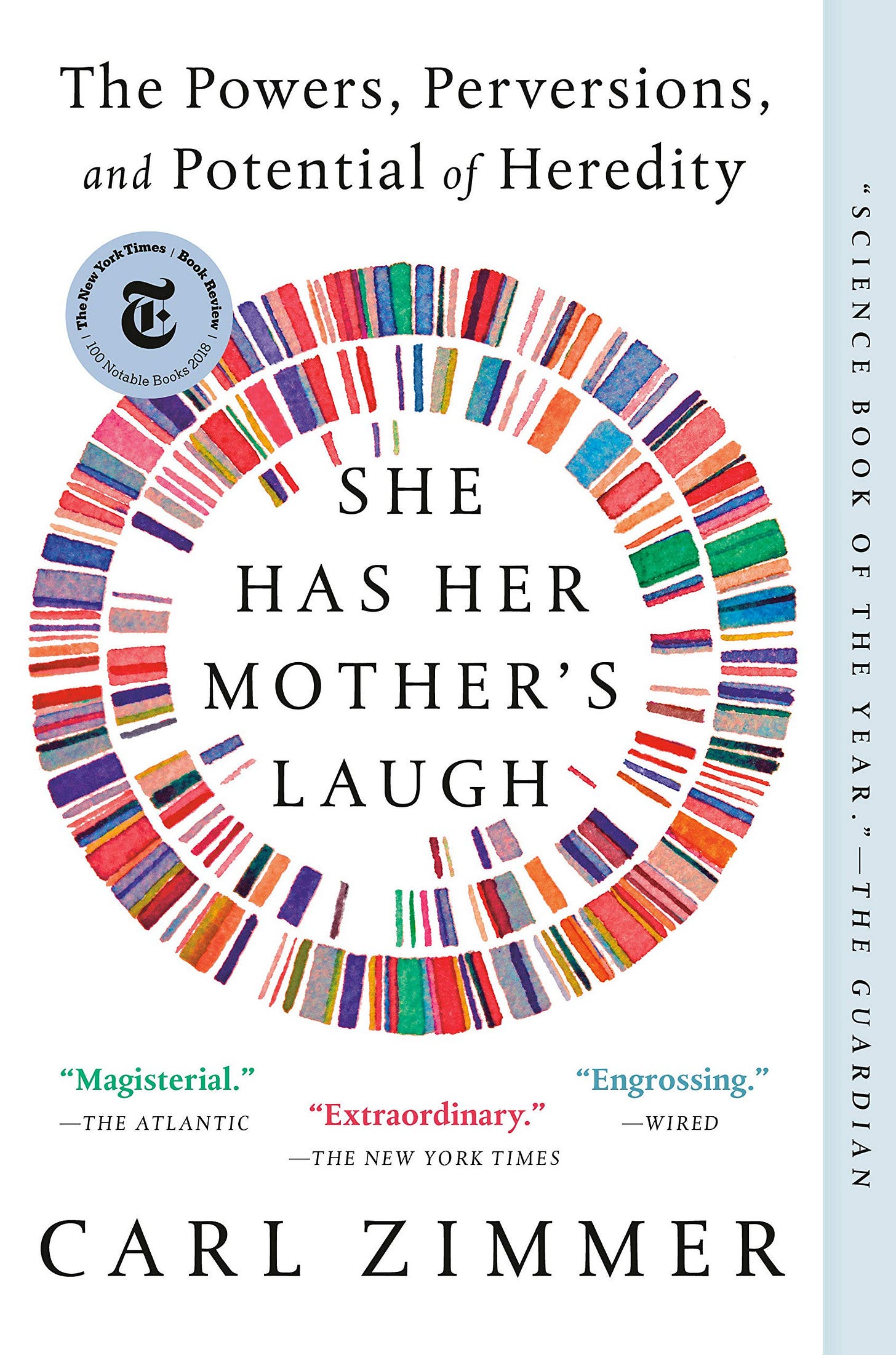
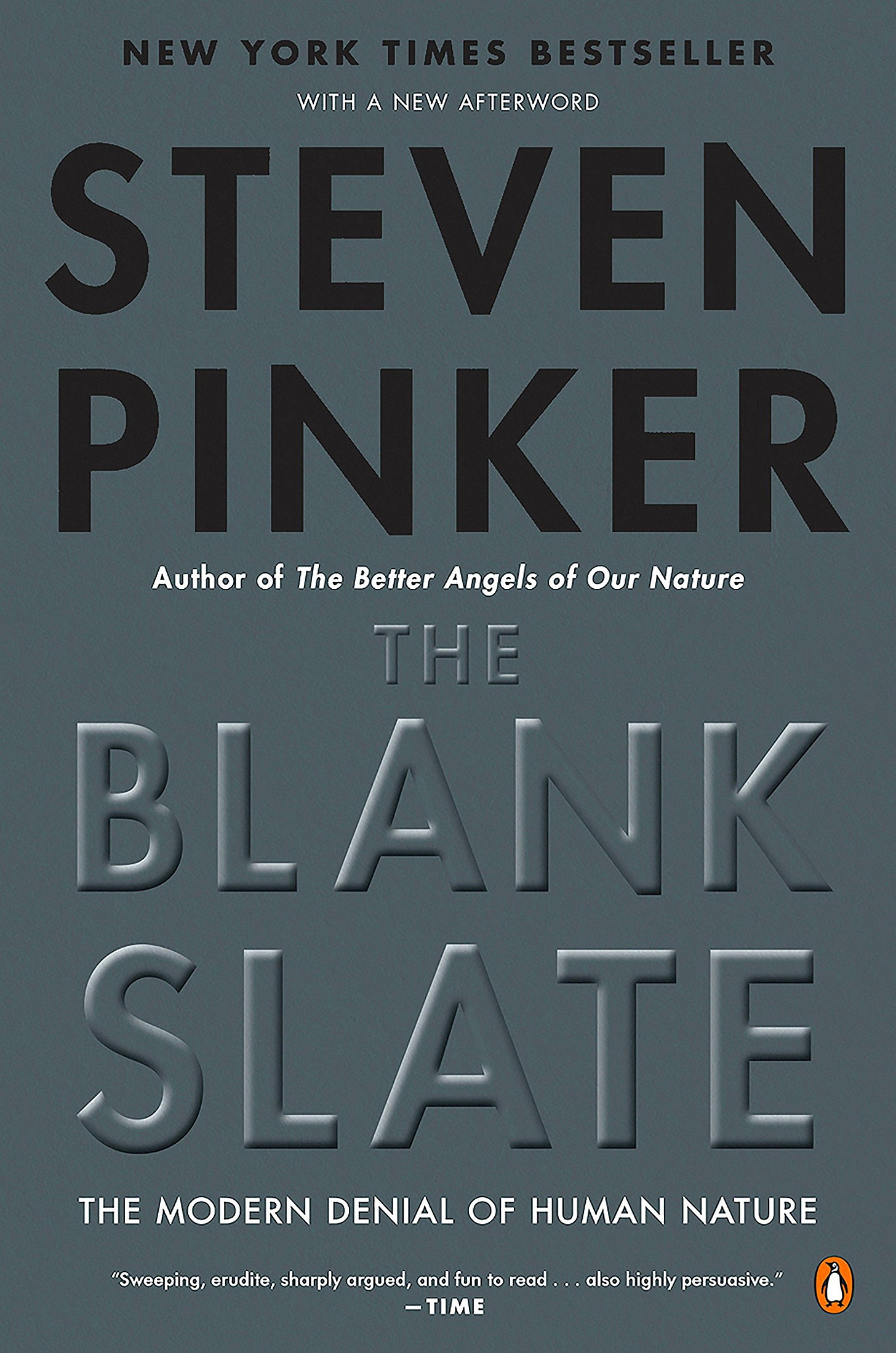
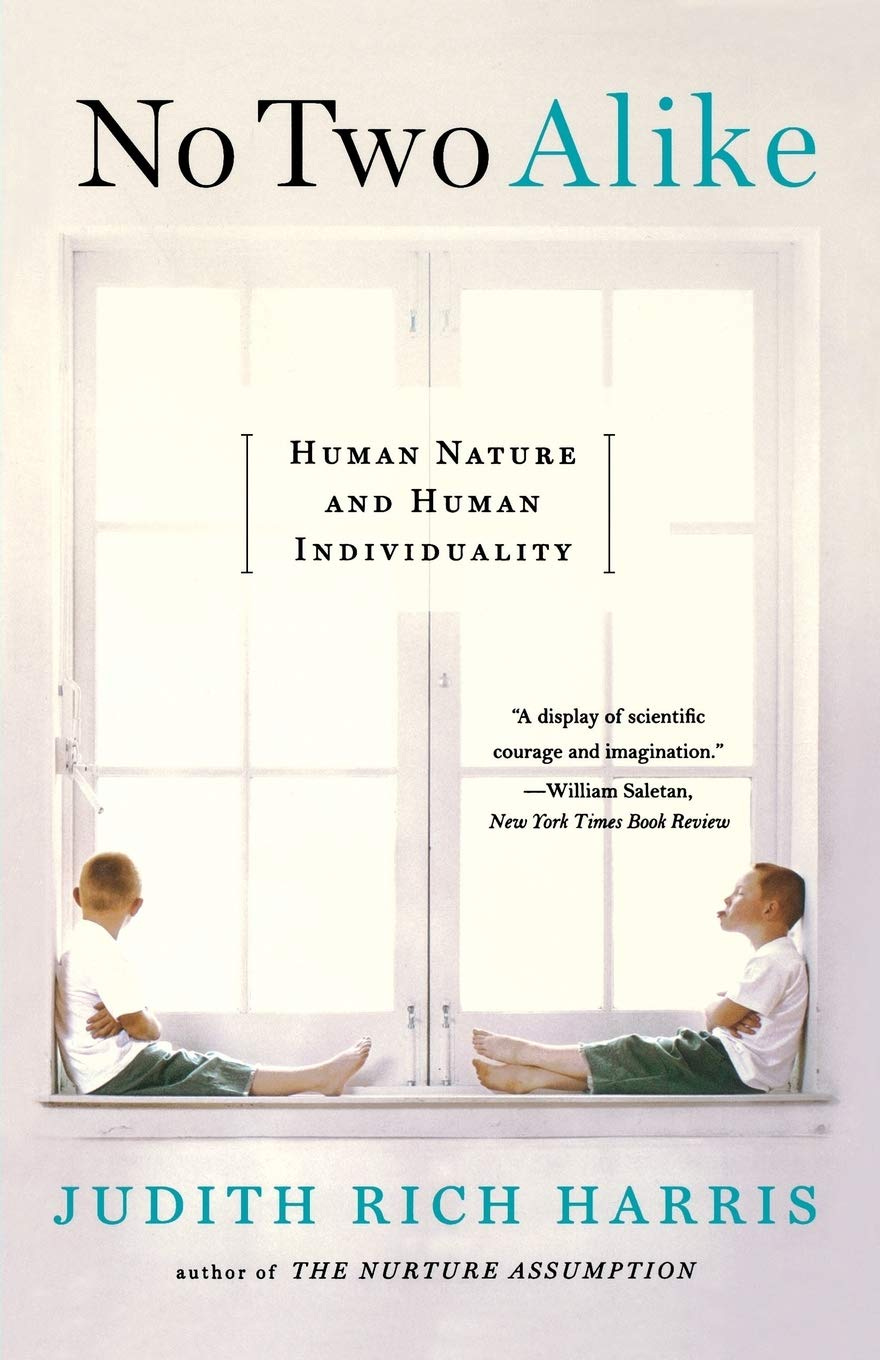
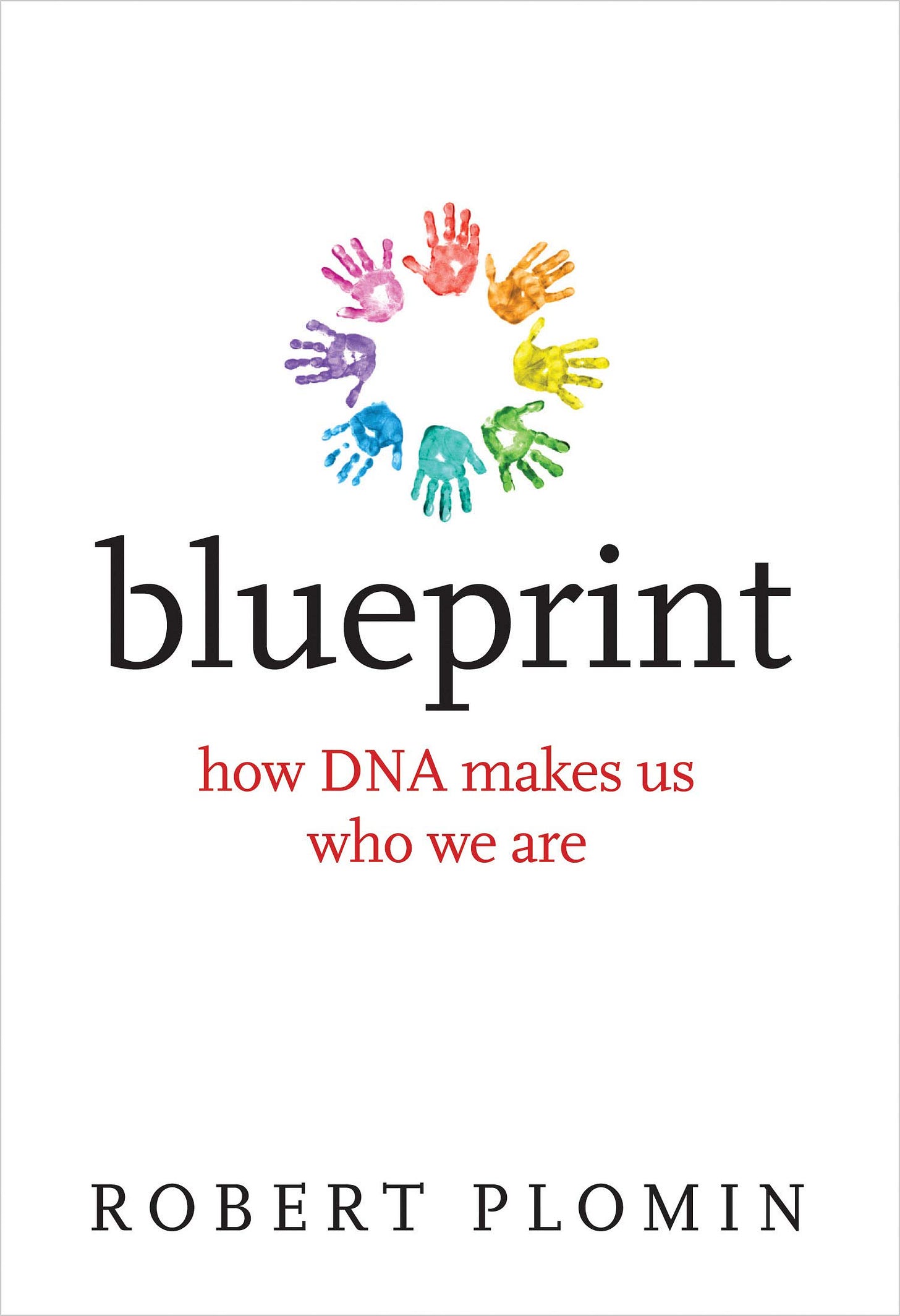
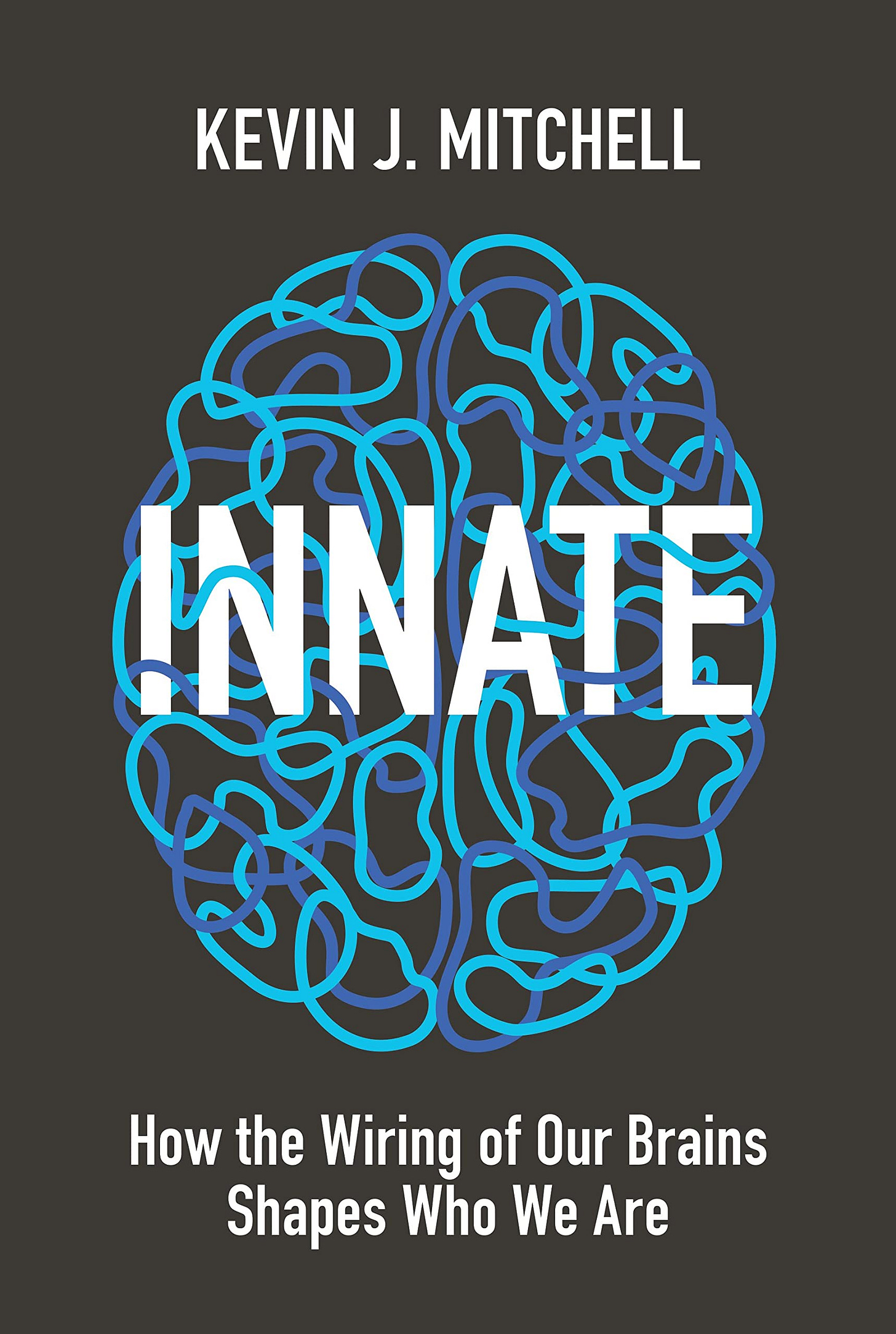
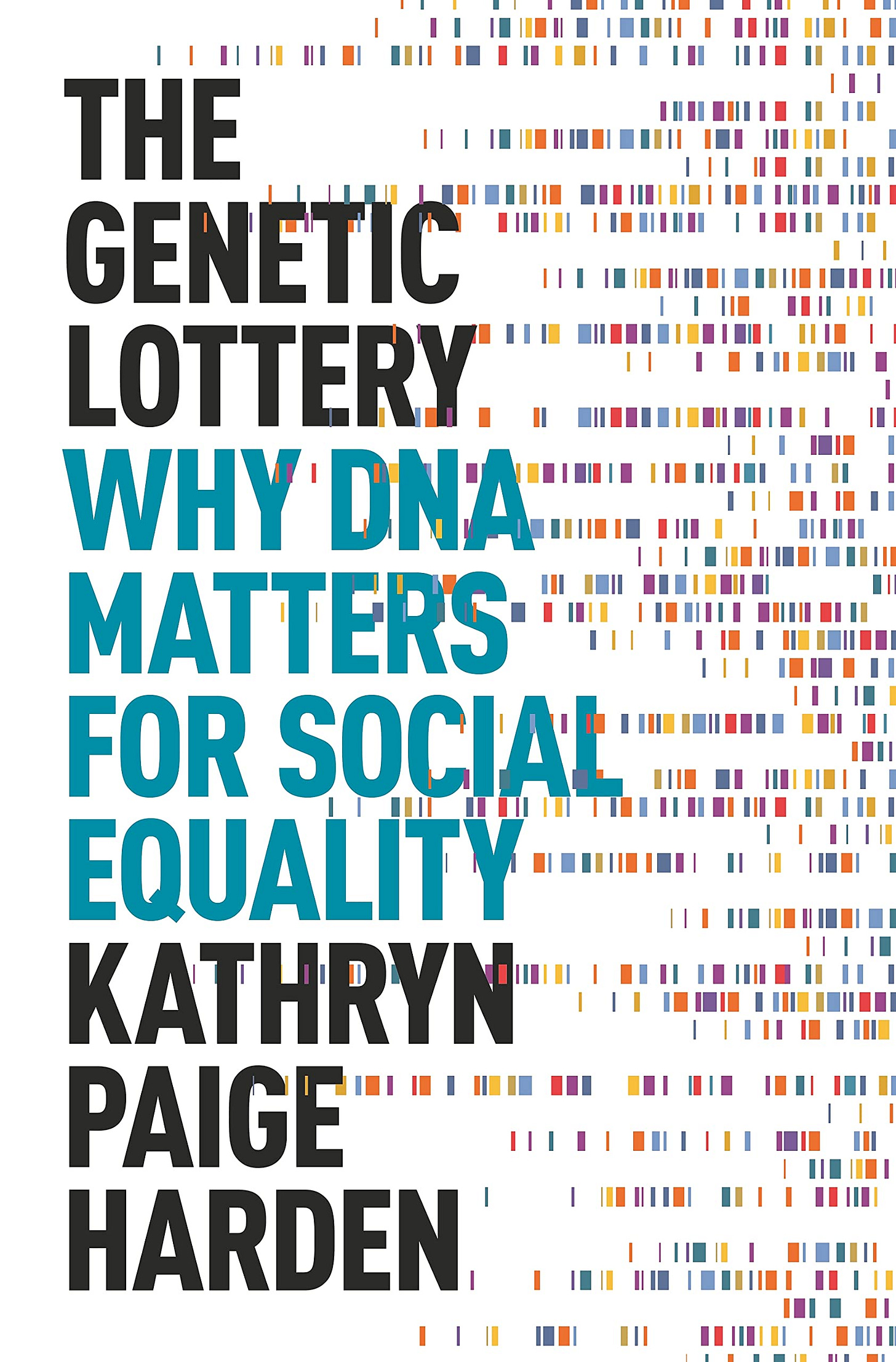
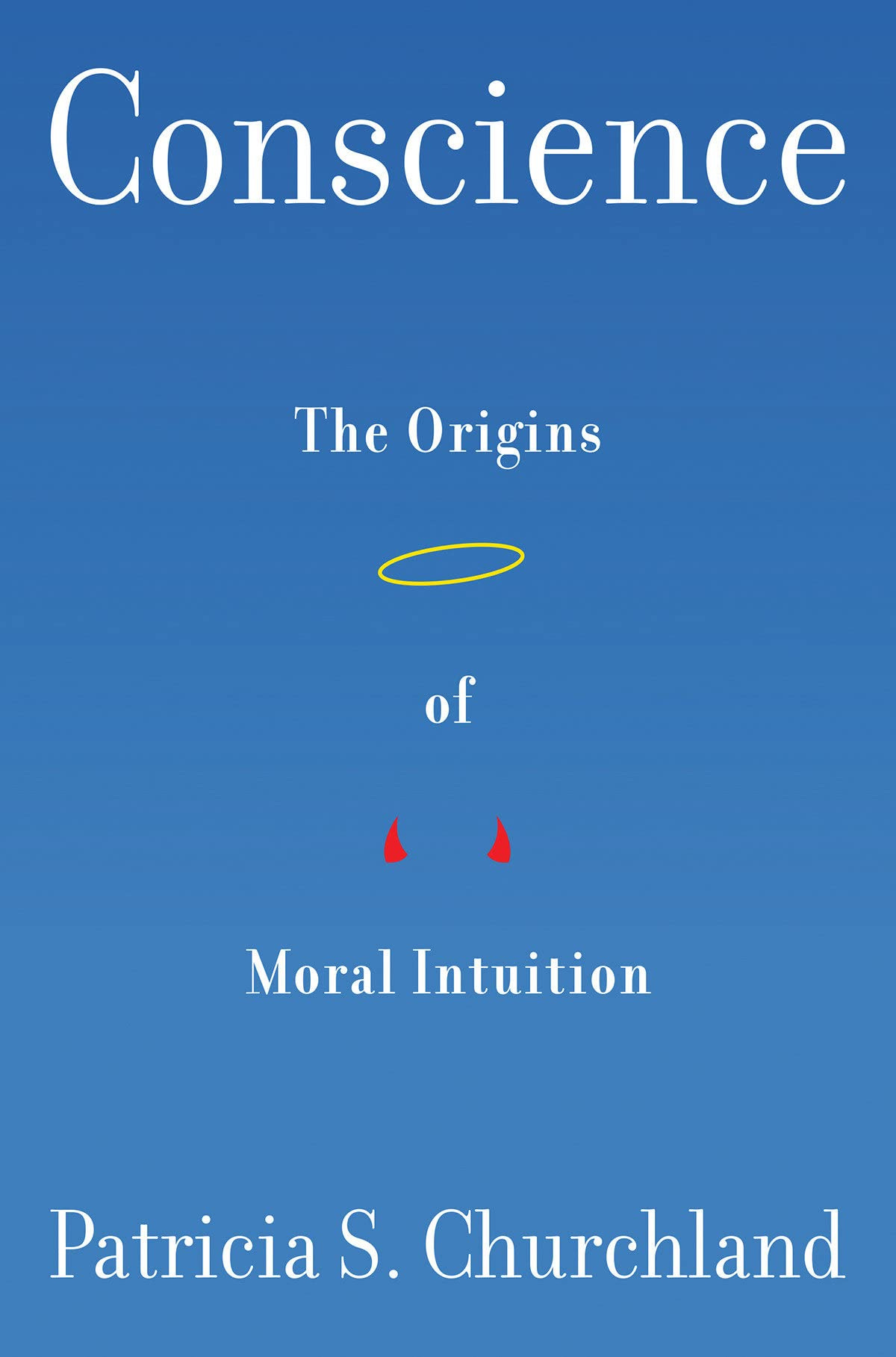
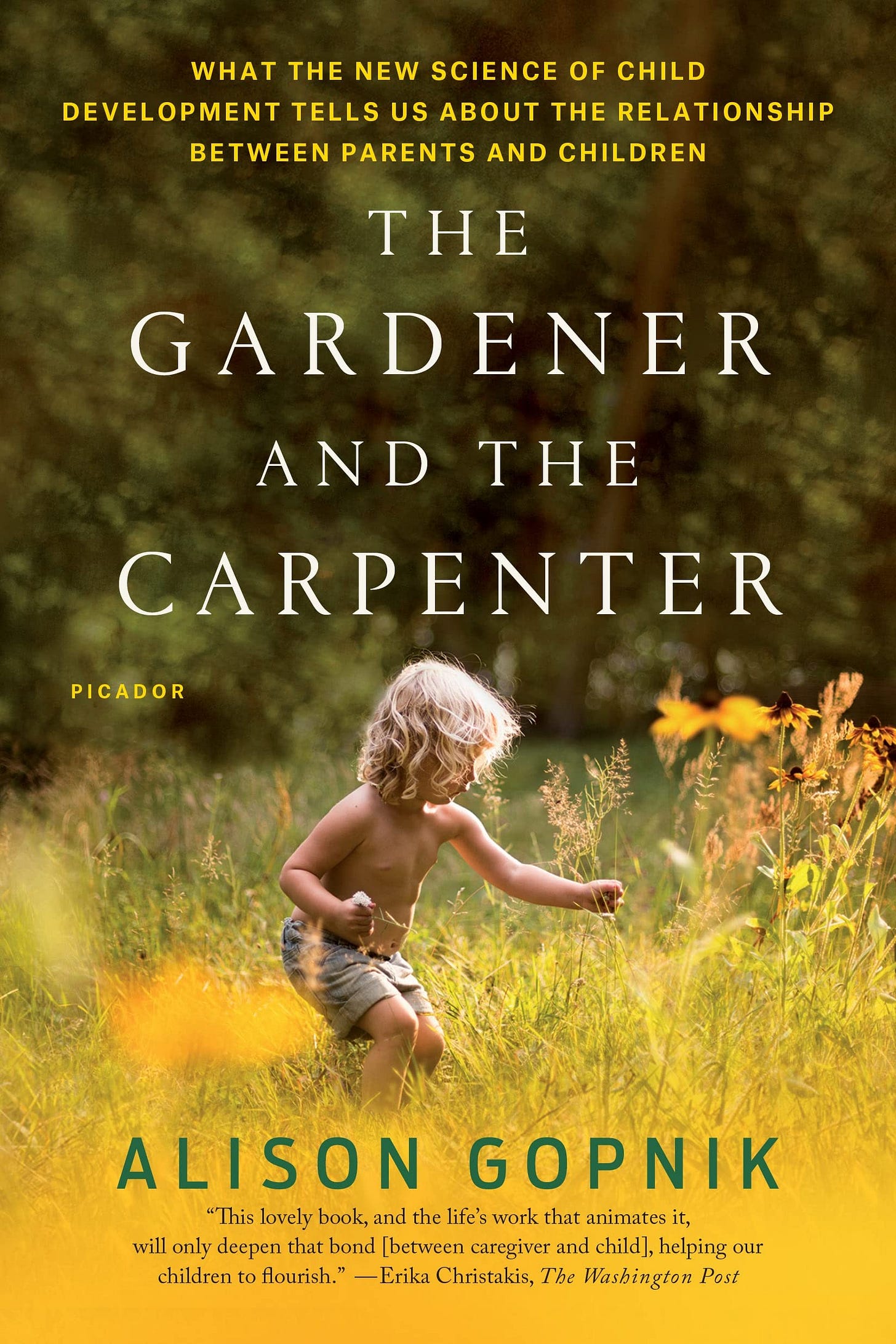

Excellent list!!!